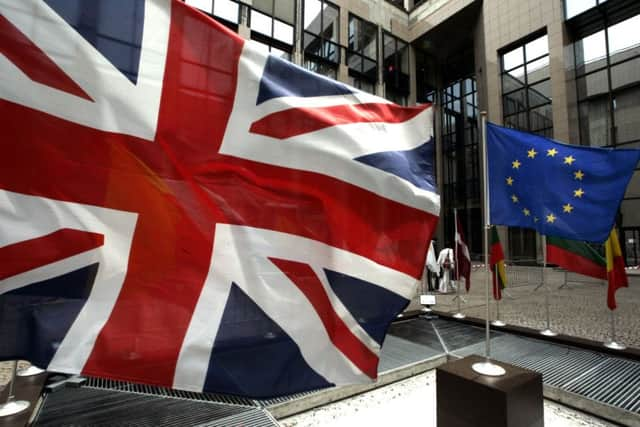Joe Wilson: Museums cannot intervene in Brexit vote


The Scottish independence referendum in 2014 led to a sea change in the nation’s relationship with politics. Whatever your views on the matter, it must be agreed that the political awakening the country experienced en route to the vote was profoundly positive. Nearly two years on, the UK has an opportunity to experience another passionate and fiery referendum campaign, with the “Brexit” vote looming. One hopes that a repeat of the political engagement that we saw in Scotland can be repeated. There are, however, lines that must be drawn.
“Museums must engage in the Brexit debate – whether they like it or not,” Alistair Brown, writing for Apollo Magazine last month, said. Museums cannot engage in the Brexit debate, though, nor should they. Meddling in political affairs is not what museums are for. The Scottish National Galleries or the National Museum of Scotland, for example, are non-departmental public bodies, meaning they are apolitical despite their status as state-funded assets. Just as smaller regional museums are not to be used as instruments for the councils who operate them, nor can they express any other political opinions.
Advertisement
Hide AdAdvertisement
Hide AdPolitics is divisive, and museums must be neutral. As publically funded bodies, it would be wrong for them to risk alienating taxpayers by voicing political opinions. The museum is the custodian of history, not the author of it. Institutions could, of course, engage with the debate without picking sides, presenting an unbiased account of the arguments in order help people better inform their decision, but, in my view, it’s just not worth the hassle. Call me sceptical, but an unbiased account of a referendum debate is an unattainable dream.
Referendums are about individuals – they can split political parties down the middle. They are democracy in its purest form: no constituencies, no tactical voting, just one question and two sides to pick from, and the box most individuals tick forms the majority public opinion. How can you be unbiased when there is no middle ground to reside in? How can a group of museum professionals satisfy an opinion that they have presented an unbiased programme when it is comprised of people who must be leaning one way or the other? No matter how competently they try, they will never satisfy everyone that they have done so, and everyone needs to be satisfied by museums because everyone pays for them.
Alistair Brown is not wrong in his assertion that the debate needs a cultural voice. Museums would be better off should the UK vote to remain part of the EU, preserving its receipt of important funding and links to research networks in the arts and sciences. The alternative is also demonstrably bleak, with the government cuts pulling the plugs on the life-support machines of many of England’s smaller regional museums. Our cash-strapped municipal museum services here are not short of their own problems. Not even London museums are safe.
Referendum results are the sum total of the opinions of individuals, and individuals must argue the case, too. If it was ethical for a museum to voice a political opinion, surely they would have campaigned against voting for Conservative austerity in the general election last year, but it isn’t. Sadly, museums are condemned to accept their fate, whatever it happens to be. They are anchored to a world they cannot move, only hoping that it continues to choose it to tell its story. It is we, as individuals, who write that story though, and if you cherish those institutions, you must speak up for them. The museum has its hands tied; it is up to the people to join theirs to protect them.
• This is an edited article from I Think Of Icarus, a museum blog run by Glasgow-based writer Joe Wilson. http://ithinkoficarus.com